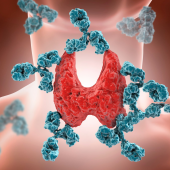In this episode, we are returning to the topic of men’s sexuality, this time during and after cancer treatment. Our guide in this series of programs is Dr Judith Boice, who has been in practice for 27 years. She is a naturopathic physician and acupuncturist, an international bestselling author and an award-winning educator.
Our focus is on the physical and emotional impact of cancer treatment on men - and their partners. We will also discuss how to speak to male patients about the challenges they face through cancer treatment.
Key Take-Aways
Reluctance of male patients to start a dialogue
Many times patients are looking to you, the practitioner, to begin this conversation. They may have major concerns, but are either afraid, reluctant, or embarrassed about bringing up the topic. Often they are terrified; concerned about not being able to enjoy the same degree of sexual function they are used to, or they are fearful of losing their partner.
Desire to live
Immediately after a cancer diagnosis, while still in shock, your patient may be thinking “I'm just interested in surviving. Who cares about sexuality?” However, the treatment that patients endure will have a profound impact on their sexuality later.
Often, the effects of the treatments are not properly explained ahead of time, so patients are often not able to make informed decisions about what is most important to them. These are not easy or pleasant choices.
Challenges men face during cancer treatment
Fatigue is often a huge issue. If a body is fatigued, if it is under stress, and the first system to suffer is the reproductive system; so interest in sex, the ability to have an erection, or to have an orgasm are all affected.
Your patient has to have enough core vitality to be interested in sex and to be able to have sexual intercourse. Some men may also experience changes in their body shape. They may be gaining weight or losing weight. In addition, pain can occur in different parts of the patient’s body, depending on where their treatment is affecting them. All of these factors can have a profound impact on a patient's sexuality.
Effects of pain
Prostate surgery or radiation treatment for prostate cancer causes pain in the surrounding perineal region. Also, radiation increases fatigue in the body as a whole.
In addition, if men are prescribed opioids to help manage pain, they will experience reduced motility in the digestive tract and will be prone to constipation. Understandably, all of these side effects affect an individual's sexuality.
Fertility issues
Depending on the type of cancer, male’s will have reduced fertility after cancer treatment. If a couple is interested in having children, it is important to plan for the impact of their treatment on their sperm health.
Sexuality after treatment
After treatment, it can take time to restore your patient’s core vitality. Naturopathic treatment can rebuild overall health through the use of adaptogens, supplementation and exercise.
Ironically, when someone is fatigued, exercise can be one of their greatest allies in restoring energy and vitality.
Erectile dysfunction
For many men, prostate cancer leaves them with erectile dysfunction issues. There are several treatment options to address erectile dysfunction.
The first line in conventional therapy is the phosphodiesterase inhibitors, including Viagra and Cialis.
The second level of support is to work with vacuum erectile devices and penile injections. The third line of therapy is to use penile implants.
Sexuality after prostate surgery
One of the recommendations for men after prostate surgery is to have erections and intercourse as much as possible, with a view to helping reestablish the normal circulation in the penis.
Naturopathic physicians can recommend hydrotherapy, such as alternating hot and cold baths. We can suggest a range of therapies to improve the circulation in the pelvic region.
Renegotiating the sexual relationship
It’s important to include your patient’s partner into the discussion. Assumptions are made on both sides which can impact the quality of the relationship going forward. It’s important to address these and start a dialogue.
Only 10% of women and 14% of men actually have a conversation about renegotiating sexual relationship with their partner. The partner may also feel guilty. Also, the patient may feel suddenly inadequate.
For instance, the patient may think “I can't have an erection so she is going to leave me”. Whereas his partner is more concerned about his survival.
Communication is more important than ever and the practitioner can play a key role in getting these issues out in the open.
Grieving
If the patient is in palliative care or a hospice, it's important to allow for privacy for the couple to experience intimate contact if they desire it.
In the case of LGBTQ couples, research reveals that only about 5% of partners are given appropriate support. In some cases, partners have been denied access because they do not conform to institutional standards for marriage or family partnerships.
Thankfully this is changing.
Key Quotes
“One of the first things I ask is, are you interested in talking about sex? Are you interested in talking about sexuality? Has that been a concern to you? And you may need to ask it more than once. Sure. So, bring it up gently.” Dr Judith Boice ND
“One of the most important long-term sex organs, is your mouth. You're talking as well as pleasuring your partner with your mouth. Communication is hugely important, and that goes both ways, both for the partner and for the patient and the recovery process to be in communication with each other.” Dr Judith Boice ND
==
The opinions expressed in this Nutramedica program are those of the guests and contributors. They do not necessarily reflect the opinions of Nutritional Fundamentals For Health Inc.
This video is intended for licensed or registered health professionals and students of health professions only. These statements have not been evaluated by the Food and Drug Administration. Information contained in these programs are not intended to diagnose, treat, cure or prevent any disease.



